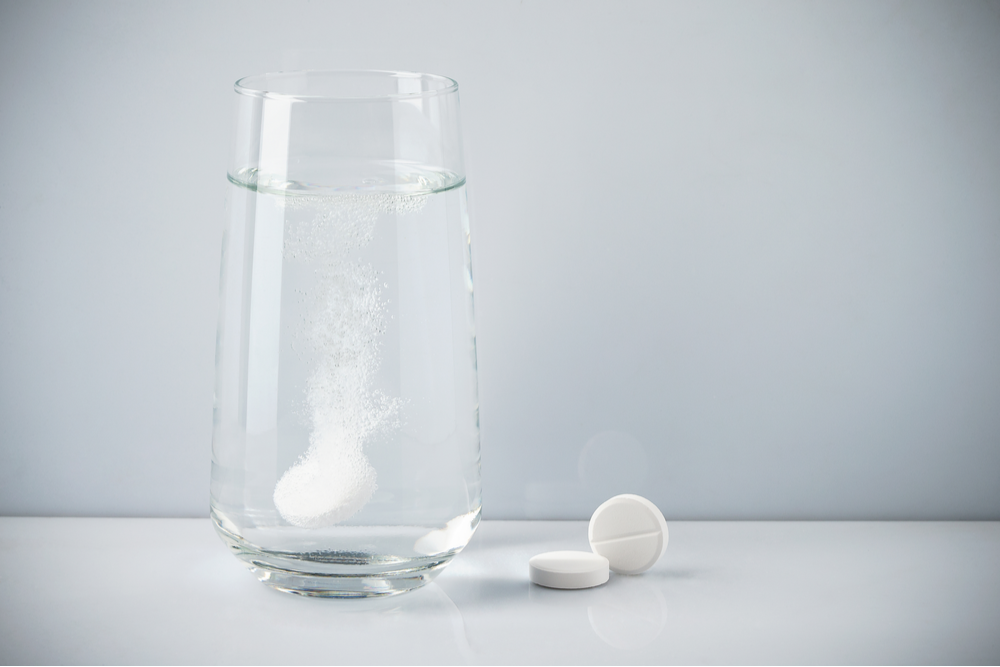Acid reflux- causes and treatment
Medically Reviewed by Dr Ali Zavery
Last updated on 13.06.2024
Acid reflux is when stomach acid flows from the stomach upwards into the oesophagus. The oesophagus (us-off-a-gus) is the tube connecting your mouth with your stomach. Acid reflux can cause irritation of the lining of the oesophagus. Gastro-oesophageal reflux disease (GORD or GERD) may be present if someone has symptoms of acid reflux more than twice a week.
Many people experience acid reflux from time to time. While most people can manage the symptoms with lifestyle changes and simple medications from their pharmacy, some people suffering from GORD may need stronger medications or even surgery to treat their symptoms.
Anyone with acid reflux or GORD symptoms that are not settling, or that are getting worse over time, should seek medical advice, as investigations may be required to rule out more serious underlying conditions.
Symptoms
The main symptom of acid reflux is “heartburn”, which is a discomfort or burning sensation which rises from the upper tummy or lower chest up towards the neck. Other common acid reflux symptoms include:
- Nausea
- Belching
- Indigestion
- An acid-like taste in the mouth
- Persistent dry cough
- A feeling of a lump in the throat
- A burning pain when you swallow hot drinks
Symptoms tend to be worse after or with meals.
People often experience worsening of their acid reflux when they are lying down, particularly at night, which may lead to a chronic (persistent) dry cough, throat irritation or hoarseness, and disrupted sleep.
However, anyone who experiences chest pain which is new or different to what they’ve experienced before, should seek immediate medical attention, as chest pain can be a symptom of a heart attack. Chest pain accompanied by pain into the left arm, jaw pain, sweating, shortness of pain or weakness is particularly concerning and may relate to the heart.
Causes of acid reflux
The stomach naturally makes acid as part of normal digestion. Usually the sphincter (ring of muscle) at the bottom of the oesophagus acts as a valve and keeps this acid in the stomach, but if this sphincter relaxes when it shouldn’t, the contents of the stomach can rise up into your oesophagus, and sometimes all the way up to your mouth. Some factors that make acid reflux more likely include:
- weakness of the oesophageal sphincter
- too much acid being made in the stomach
- if the stomach is not emptying properly
- if there is increased pressure in the stomach, forcing acid back up into the oesophagus (for example, during pregnancy)
- certain types of food such as spicy, acidic or fried foods
- certain medications such as anti-inflammatories (check the label of your medication for side effects if you’re not sure)
- presence of a hiatus hernia (where the upper portion of the stomach bulges up through the diaphragm, into the chest. The diaphragm is a layer of muscle that separates the chest from the abdomen.
- being a smoker
- eating large meals or eating late at night
- certain beverages, such as alcohol or coffee

Treatment of acid reflux- lifestyle
To get rid of acid reflux, often the first step is to make some lifestyle changes. 10 lifestyle changes that may help acid reflux include:
- quit smoking
- try to lose excess weight
- elevate the head of your bed by a few inches
- avoid eating late at night/close to bed time
- avoid larger meals- trying smaller, more frequent meals instead
- avoid certain common triggers such as uncooked onion, spices, fatty greasy foods.
- some people report that a diet lower in carbs (carbohydrates), such as bread, pasta and sugary foods, may help their reflux symptoms
- avoid excess caffeinated or carbonated (fizzy) drinks
- reduce or eliminate alcohol intake
- check any medications you are taking- some drugs can cause worsening acid reflux as a side effect.
Treatment of acid reflux- medication
All medications have the potential to cause side effects in some people. Some medications can also interact with other drugs you may be taking- so it is always important to discuss treating your acid reflux with a doctor, especially if the problem is continuing for weeks or longer.
Antacids and over-the-counter options
There are many over-the-counter medications available from pharmacies which can help to neutralise stomach acid and/or soothe the lining of the oesophagus. These may be adequate for the management of mild acid reflux.
PPIs
“Proton Pump Inhibitors” or PPIs are medications that reduce the amount of acid your stomach makes. They are very effective, particularly if there is inflammation of the oesophagus (oesophagitis) or stomach (gastritis), caused by acid. They can help ulcers to heal. There are many brands available- some are available without a prescription, but you will need to see a doctor for a prescription if you need to take them for more than a week or two, or if you need a higher dose.
H2 antagonists
H2 antagonists are another type of medication that reduce the amount of acid produced by the stomach- they are not quite as effective as PPIs, but sometimes may be used if a person cannot take a PPI due to side effects or other issues.
Treatment of acid reflux- surgery
For most people, lifestyle changes and medications are enough to manage the symptoms of GORD. However, sometimes surgery may be considered if these measures are nor working, or if complications are developing. A procedure called a Nissen Fundoplication may be considered. A Nissen fundoplication involves wrapping the top part of the stomach around the oesophagus, to create the effect of a sphincter. It is often a laparoscopic procedure (keyhole surgery).
Diagnosis of Acid Reflux
In most cases, a doctor can diagnose acid reflux or GORD by by asking questions about your symptoms. If the symptoms are not straightforward, getting worse, or if there are some worrying issues such as weight loss, you may need to have some further tests- this might involve blood tests, an ultrasound of the abdomen, and often a referral to a specialist to have a camera test of the oesophagus and stomach (endoscopy).

Complications of acid reflux
Sometimes people experience what they think is just acid reflux, but in fact a more serious underlying issue may be present. If you get any of the following symptoms you should seek immediate medical attention:
- Chest pain or upper tummy pain worse on exertion
- Difficulty swallowing foods or liquids
- Persistent pain on swallowing
- Persistent vomiting
- Vomiting blood or dark brown vomit
- Unexplained weight loss
- Shortness of breath
- A change in your bowel habit (diarrhoea or constipation) for more than 6 weeks
- Changes in your bowel motion (dark or black poo)
- Lump in the abdomen (tummy)
- Unexplained low iron levels or anaemia (low blood count)
- Jaundice (yellow discolouration of the skin or eyes)
- New GORD symptoms in someone aged 55 years or over
- Acid reflux/ GORD symptoms with any of the following:
- Family history of stomach or oesophageal cancer in more than two first degree relatives
- Barrett’s oesophagus (a condition where the cells lining the lower oesophagus change to resemble those of the stomach/intestine, which have a risk of turning cancerous over time)
- Pernicious anaemia (a condition associated with low Vitamin B12)
- Previous stomach ulcer surgery
- A previous diagnosis of the following stomach conditions: dysplasia, atrophic gastritis or intestinal metaplasia
Acid reflux and related conditions
If you have certain medical conditions you are more likely to also suffer from GORD:
Asthma
Many people who have asthma also get acid reflux. It is not certain why this occurs. Many people notice that if their acid reflux is flaring up, it triggers their asthma. If you have asthma and acid reflux, you may find that carefully managing both of these conditions is the most effective way to avoid symptoms.
IBS (Irritable Bowel Syndrome)
IBS or Irritable Bowel Syndrome is a condition that affects the large intestine (gut). It commonly leads to abdominal cramps, diarrhoea, constipation and bloating. Many IBS sufferers are intolerant of “FODMAPs”, which are types of fermentable sugars in food. Acid reflux appears to be more common in people who have IBS, so sometimes it may help to tackle both issues, by seeking advice from a doctor, specialist or dietitian.
Pregnancy
As many pregnant women will notice, acid reflux is much more problematic in pregnancy, particularly in women who already had some issues before pregnancy. This may be because the sphincter muscle in the lower oesophagus becomes more relaxed and allows acid to pass upwards from stomach. Obviously, as the foetus grows, this can also create pressure on the stomach which may force acid upwards. Acid reflux can be safely treated with medication in pregnancy, but this should be done under the advice and supervision of a doctor.
Do children get acid reflux?
Acid reflux is very common in babies under the age of one, but it usually gets better over time. It often presents with small amounts of milk being vomited after feeds. While in most cases, it does not cause major issues, and does not need any medical treatment, in some instances, reflux can lead to complications- such as more significant vomiting, difficulty feeding, poor weight gain, unsettled sleep, signs of tummy pain (such as irritability, crying and arching of the back) or a recurrent cough. Of course, other conditions can cause the same symptoms, so it is very important to get advice from a GP, maternal child health nurse or paediatrician if a baby has any of these problems. Occasionally babies may be prescribed treatment for reflux, if it is severe or causing complications.
Summary
Acid reflux is common- but if causing frequent symptoms, more than once or twice per week, you should see your doctor. Never ignore worsening symptoms, particularly if you have difficulty swallowing, weight loss or chest pain that is worse on exertion. Lifestyle changes can be very effective, but sometimes medication is also needed. Seek medical advice if you have frequent or worsening symptoms.
References
https://www.mayoclinic.org/diseases-conditions/gerd/symptoms-causes/syc-20361940
https://www.betterhealth.vic.gov.au/health/conditionsandtreatments/indigestion
https://www.rch.org.au/clinicalguide/guideline_index/Gastrooesophageal_reflux_disease_in_infants/
https://www.rch.org.au/kidsinfo/fact_sheets/Reflux_GOR_and_GORD/
Support and further information
Getting a Mental Health Care Plan in Australia: Your Guide
Getting a Mental Health Care Plan in Australia: Your Guide Mental health matters—and if you’re feeling overwhelmed, anxious, or down, a mental health care plan can help. But what is it, and how do [...]
UTI Symptoms and Treatment: What You Need to Know
UTI Symptoms and Treatment: What You Need to Know Urinary Tract Infections (UTIs) are common, uncomfortable, and often disruptive. But what exactly are the signs to watch for, and how can you get relief [...]
Free Mental Health Care Plan Online | Bulk-Billed by Qoctor
Free Mental Health Care Plan Online | Bulk-Billed by Qoctor Discover how to get a free, bulk-billed Mental Health Care Plan (MHCP) in Australia through Qoctor's telehealth service. Accessing [...]



